Devolution under 18th amendment: Provincial govts handed over 12 museums, libraries
After this move, Pakistan became a unique country with no national-level museum.

As many as 12 museums and libraries across the country, including the National Museum and the birthplaces of the Quaid-i-Azam and Allam Iqbal, protected under the 1973 Constitution, have been handed over to provinces under the 18th Amendment.
Legal experts have termed the move to hand over federal government-run museums and libraries falling under the federal legislative list unconstitutional.
According to a letter issued by the deputy secretary of the federal ministry of culture, the National Museum of Pakistan has been handed over to the Sindh ministry of culture and tourism with immediate effect.
Other departments handed over to the provincial government included the Quaid-e-Azam’s birthplace Wazir Mansion, Quaid-i-Azam House Museum, Central Archaeological Library and museums at Mohenjodaro (Larkana), Umer Kot and Bhambore (near Thatta).
The Punjab government was handed over places and institutions, including the birthplace of Allam Iqbal and his personal library in Sialkot, museums in the Javed Manzil in Lahore, Harappa and Taxilla.
The Swat Museum was shifted to the Khyber-Pakhtunkhwa government.
An expert on law and the Constitution and a former president of the Sindh High Court Bar Association, Abrar Hasan, said that the concurrent list was abolished under the 18th constitutional amendment and all departments included in this list had been shifted to provincial governments but departments enjoying protection under the federal legislative list cannot be shifted to provinces. He said that the shifting of all such institutions, including the National Museum, was a violation of the Constitution.
He said that under the entry No.37 of the concurrent list, ancient and historical places and archaeological sites are to be shifted to provinces while all libraries and museums run and managed by the federal government under entry No.15 will be run by the federal government. The organisations involved in research, professional and technical training and imparting especial education and run by the federal government according to entry No.16 will also remain under the federal government.
However, the federal government has shifted the Pakistan Institute of Archaeological Research and Training in Lahore to the Punjab government.
The exploration and excavation branch of the archaeology department was also protected under the entry No.35 of federal legislative list.
Interestingly, this branch is also on the list of departments being shifted to the Sindh government.
According to some high-ranking archaeology department officials, the move would deprive Pakistan of funds provided by United Nations Educational, Scientific and Cultural Organisation (Unesco) for the protection of world heritage sites.
All countries have national museums set up in their capitals.
Pakistan had set up the National Museum in 1950 in Karachi, which was Pakistan’s capital at that time.
Initially, the museum was set up in the Frere Hall.
In 1958, the foundation of a new building was laid in the Burns’ Garden under an agreement with the Karachi Municipal Corporation (KMC). The Frere Hall was handed back to KMC.
A few years ago, the federal government had decided to shift the museum to Islamabad and a piece of land had also been allotted in this regard. But the construction was suspended because of a lack of funds.
The National Museum houses antiquities from all provinces.
After this move, Pakistan became a unique country with no national-level museum.
Meanwhile, a senior leader of the Pakistan Peoples Party and the chief of the implementation commission of the 18th amendment Senator Mian Raza Rabbani said that the shifting of all institutions was in accordance with the Constitution.
However, he said, he did not know if there was any national museum left in the country.
He said that no provincial level institution can be bestowed a national status by just calling it as such.
According to him, the institutions shifted to provinces “do not fall under the federal legislative list”.
Published in The Express Tribune, April 25th, 2011.

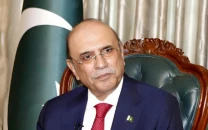
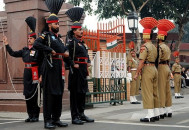
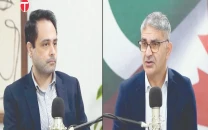

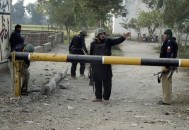
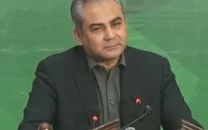












COMMENTS
Comments are moderated and generally will be posted if they are on-topic and not abusive.
For more information, please see our Comments FAQ